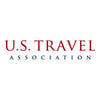How prepared are you for the cookieless future? In December, Google announced that it would “phase out third-party cookies for everyone in the second half of 2024.” Yet, an Adobe survey found that only 37% of companies are “very prepared” for a world without them.
For hotels relying on traditional advertising methods, now is the time to explore innovative strategies to effectively reach and convert potential guests. While new technologies will be key, some tried and tested tactics, like working with the world’s best media outlets, will emerge as the new contextual targeting of the cookieless future.
What’s contextual targeting?
Contextual targeting delivers ads based on the content of a web page rather than individual user data. By matching the content of the page, brands can enhance the relevance and effectiveness of their campaigns while respecting user privacy. For example, a hotel would want to appear surrounded by travel-related content
Why are media brands the next frontier of contextual targeting?
In the hospitality industry, where storytelling and brand narrative play a pivotal role in attracting guests, getting featured in the media emerges as a natural alternative to contextual targeting. Rather than relying on ads with promotional copy to target potential guests, hotels can target placements in various lifestyle media outlets, showcasing their unique offerings to specific audiences through longer-form content.
Examples:
- A hotel with a Michelin-starred restaurant would want coverage in Food & Wine
- A resort with a designer golf course would go after placements in Golfweek
- A hotel known for celebrity sightings might like to appear in People
Identifying the media outlets that best match the hotel’s messaging will enable brands to reach more engaged audiences actively seeking inspiration (hopefully getting them to book a room).
Crafting compelling narratives
It used to be that telling broad stories – ones that were relevant to the widest segment of the hotel’s audience – was essential for maximizing revenue. As we move into the cookieless future, crafting narratives that resonate with unique audience segments will help hotels better capture travelers’ imaginations and inspire them to book stays.
For example, if a hotel offered a mix of all the above examples (a Michelin-starred restaurant, a designer golf course, and celebrity sightings), going for a generic story that tries to appeal to all audience segments diminishes each unique narrative. Crafting exciting stories for each audience and then identifying the right outlets to cover them will yield better results and reach many more potential guests than a single story.
Authenticity, creativity, and emotional resonance are vital ingredients for creating memorable brand experiences that leave lasting impressions on potential guests – and hook media outlets to cover the story in the first place.
Measuring success in the cookieless era
In the absence of third-party cookies, measuring the effectiveness of media brand campaigns is increasingly essential. With contextual targeting, it’s no longer about casting a wide net and hoping for the best. Instead, success will come from engaging the right audience with the right content..
For example, the average visitor spends less than a minute on a hotel’s website. In contrast, visitors who come to that same hotel site through a Travel + Leisure newsletter can spend upwards of three minutes, signaling that media outlets do a good job educating and exciting potential guests about a particular property and its offerings.
Still, this only scratches the surface of measurement. As we move into the cookieless future, advanced analytics tools and attribution models are necessary to track the customer journey from initial exposure to conversion, providing valuable insights into the ROI of brand-building, top-of-funnel marketing initiatives.
Action Plan
As hotels prepare for the cookieless future, embracing media brands as a contextual targeting strategy can be a game-changer. By harnessing the power of media brands, crafting compelling narratives, and measuring success effectively, hotels can leverage opportunities to reach, engage, and convert potential guests while respecting their privacy.
In an era where traditional advertising methods are losing relevance, targeting capabilities, and accurate reporting, media brands offer hotels a strategic advantage. Up against an incredibly crowded marketplace, media brands as contextual targeting offers hotels a strategic advantage in differentiating themselves and driving bookings in the cookieless future.
About Curacity
Curacity is a hospitality technology company on a mission to help hotels drive demand and convert higher-value guests. Over 600 hotels, resorts, and cruises have used Curacity’s guest acquisition platform to drive more than $625 million in revenue. Headquartered in New York City and Stamford, CT, Curacity launched in 2015. Curacity is among the top 10 in travel and hospitality on the Inc. 5000 list, a Best Content Marketing Platform finalist in the Digiday Awards, and the Best Tech Innovation winner in the Independent Lodging Congress’ Indie Awards.





